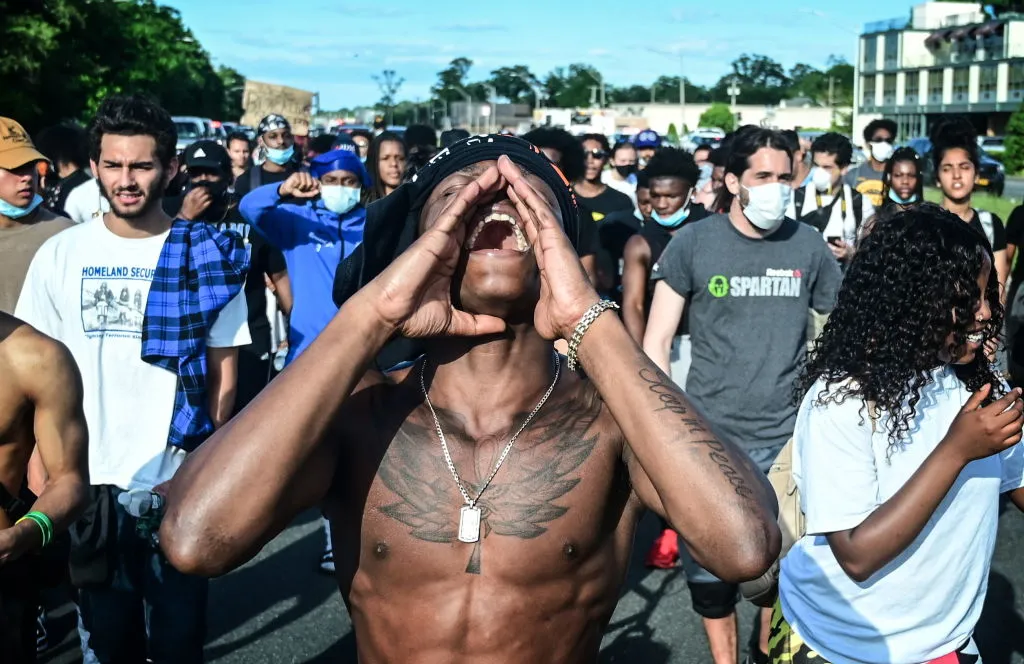By Tyler Paré
Copyright keenesentinel

The price of being a historical witness can at times be quite steep. One moment, witnesses are confronted with uplifting events, just to turn around to be presented with one equally horrifying. Despite this dichotomy, one must not turn away from the unfolding of history. To do so is to risk failing to understand the forces that drive the human experience — or worse, to lose the desire to know why humanity is capable of both greatness and wickedness at the same time.
As filmmaker Werner Herzog once said, “[t]he poet must not avert his eyes.”
I did not avert my eyes when Russia invaded Ukraine. I did not avert my eyes on Oct. 7, nor during the subsequent Israeli airstrikes. And I did not avert my eyes when Charlie Kirk was assassinated.
All of these events evinced human wickedness. However, it was in Kirk’s assassination, much like in the assassination of Melissa Hortman, that I saw a direct threat to the existence of America’s constitutional republic: the choice of violence over discussing political differences.
The successful functioning of America’s constitutional republic depends on the choices of its people: the choice to create political institutions that reflect and channel human nature, the choice to allow one’s own ambition to be balanced by the ambitions of others, and the choice to recognize that compromise is sometimes the best way to preserve the health of politics.
The choice-based foundation of America’s democratic experiment was laid bare in Federalist 1, when Alexander Hamilton wrote, “… the people of this country, by their conduct and example, to decide the important question, whether societies of men are really capable or not of establishing good government from reflection and choice, or whether they are forever destined to depend for their political constitutions on accident and force.”
To make the American republic work, the choice to deliberate and reflect upon differences, then build institutions predicated upon said deliberations, must prevail.
The stunning realization that democracy could function only if its people chose for it to work was a revolutionary thought in 1788. Before this, the only choice that mattered in politics was that of a king or noble. Hamilton knew that the institutions of the American republic would be mere auxiliary precautions against political violence if choices were not nurtured by robust civic discourse.
Violence is much easier to choose than the formation of democratic habits. It is much easier to harm than it is to listen to someone who disagrees with you, especially when you may have to come to a compromise with that person.
Many Americans are worried that we are on a collision course with a major internal violent event. While this feeling and outcome are disappointingly not new in American history, we must begin to examine why Americans are failing to develop the habits necessary for our republic to function properly.
Americans have always been divided along ideological lines. This is why political parties exist. This is also why people get into heated conversations at work and during Thanksgiving dinner. As old as these divisions are, something feels different nowadays. It feels more personal, more visceral. Americans are witnessing a time where they see each other as enemies and threats to each other’s very existence.
As a result, many Americans will not engage with someone who disagrees with them politically. Worse, these individuals develop animosity and hatred toward each other, which sets the stage for acts of violence over discussion.
If we know how important the choice of deliberation is to the health of the American republic, why have we stopped doing it? Why do some Americans see political violence as justifiable?
What if the issues that currently plague our republic do not stem from one political party, but from social factors that influence our daily choices?
One contributing factor may be the troubling lack of urgency given to civic education in public schools since the early 2000s. With the passage of No Child Left Behind and the wave of standardized testing that followed, social studies has been pushed aside in favor of math and reading proficiency. Yet this shift has done little to produce meaningful gains for American students in either subject.
By allowing civic and social studies education to fall by the wayside, many American students now graduate high school lacking the skills to engage in civil dialogue or thoughtfully examine opposing political views. This may explain why so many enter college believing that perspectives contrary to their own are tantamount to violent attacks. Such a mindset fosters political rigidity and social anxiety, establishing a tacit permission structure of hostility toward perceived opponents.
Another contributing factor to the current uptick in political violence could be our digital information environment. Over half of Americans consume news through social media. Putting aside a discussion about the quality of news encountered on social media, the real issue with this method of news consumption is how social media presents news.
Social media algorithms have a single goal: to keep users’ attention on the screen for as long as possible. By prioritizing engagement, these platforms consistently show individuals content that is designed to either affirm their existing views or provoke outrage. Outrage, in particular, drives engagement at an exponential rate. As a result, consuming news through social media produces a funhouse-mirror version of reality — one that reinforces confirmation bias and heightens anxiety toward those perceived as outsiders or ideological opponents.
Since users can always retreat into digital spaces that reaffirm their own beliefs, they lose both the need and the inclination to engage civilly with opposing viewpoints. This erodes what little remains of the deliberative Tocquevillian public square that once characterized American democracy.
Despite their harm to civil discourse, these factors are not fatalistic. We must acknowledge them and choose to develop better political habits.
In the immediate aftermath of Kirk’s assassination, individuals on both sides of the political aisle spewed escalatory rhetoric. Utah’s governor, Spencer Cox, struck a calmer tone with an empathic plea for Americans to “choose a different path.” A path not marked by violence toward perceived political enemies but rather by civil deliberation.
In the same breath, Cox called upon the youngest generations to build an America where they could “disagree better.” To choose an America where civility comes before rhetoric and does not provide tacit support for political violence.
This would be a considerably different America from the one we are currently witnessing. That is precisely the point. We must bear witness to the state of politics that we have created to find solutions. If we choose not to witness this moment, we will lose the ability to repair what is broken. More importantly, we will fail to set a proper example for younger generations.
If the younger generations have any hope of disagreeing better, they must witness us doing it first. If all they witness are adults castigating each other as wicked enemies, what will their political habits be? We must choose to form civil democratic habits so that our younger minds have a chance to do the same. If we do not develop these habits, we will hand the reins of democracy over to a generation that will pay a steep price for the politics we have wrought. Political violence might then become a more attractive choice for a generation that has not learned to choose democracy.



